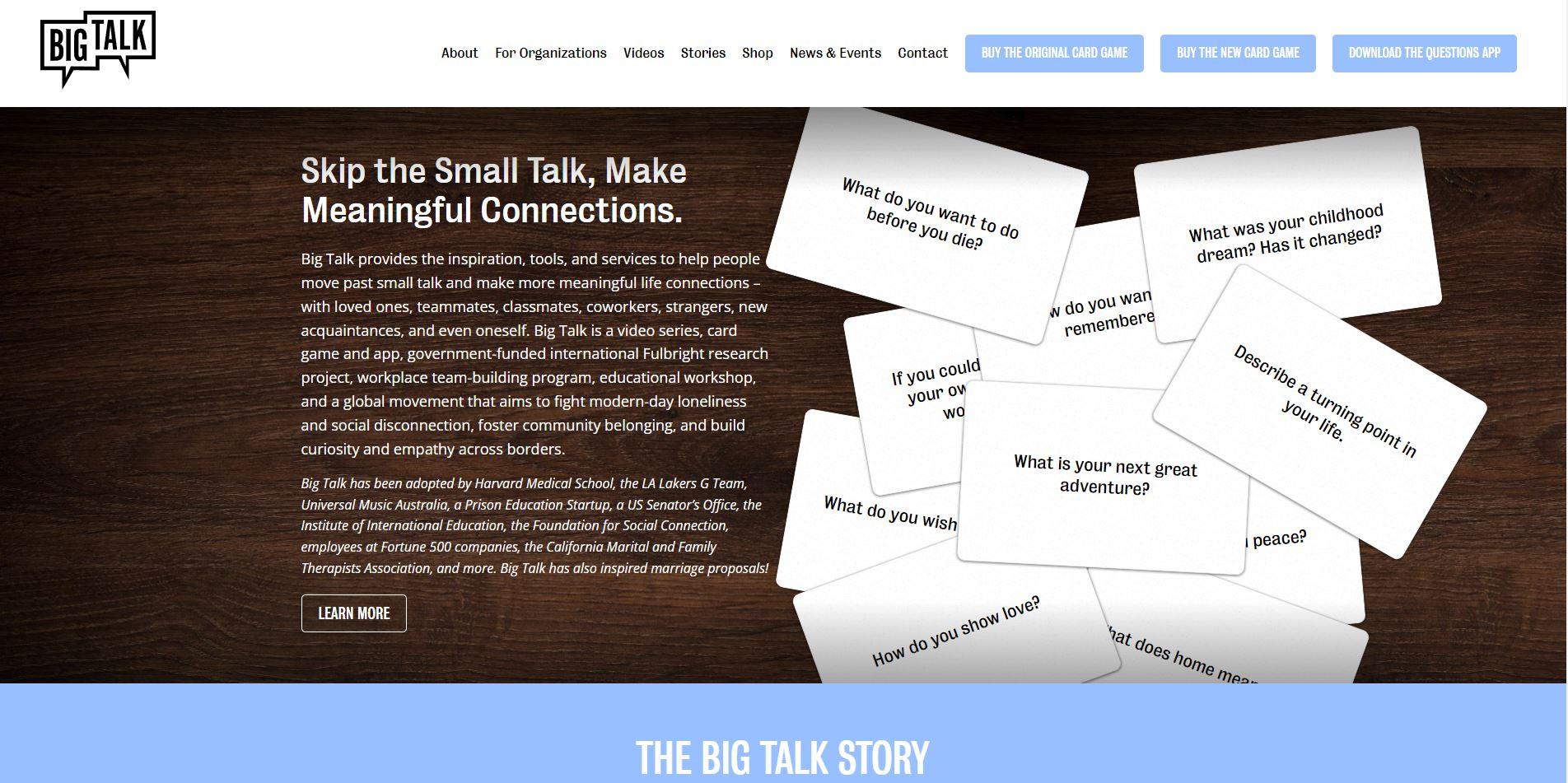While I had a good experience as a player, as a designer I’m not convinced that “Skipping the Small Talk” is all that great of an idea. In games like We’re Not Really Strangers and even in the 36 questions first pioneered in Aron et al (later dubbed The 36 Questions That Lead to Love by The New York Times), intimacy slowly ramps up over time, giving people a chance to get used to sharing, comfortable, and curious about each other. As easy as it is to hate small talk, it serves a very important social purpose. People are naturally cautious about being vulnerable with others, and so on a deep physiological level, we need confirmation that we are safe. By asking less vulnerable questions first, these systems allow repeated confirmation that everyone present is a party to the social contract of disclosure, and is committed to pursuing genuine connection.
Big Talk, by contrast, starts off deep from question one. For me, this wasn’t an unpleasant experience: I played with my girlfriend, so we had a basis of trust and intimacy to build from. We’d asked most of those less vulnerable (and, honestly, many of the questions Big Talk asked) of each other already. However, thinking as a designer, I can imagine how, if I was playing with a stranger and the game started by asking us “How do you want to be remembered when you die?” I’d feel more put on the spot than anyone else. How will they react if my answer to this question reveals I’m an atheist? Is the answer I’m saying really true, or is it just the closest I can get to my real answer at that moment? Do they understand that I don’t really know the answer to any of these and am just doing my best here? And so on.
Further, the app failed to provide a structure for the game. I would love for there to have been some sort of a turn order, because we spent a while playing the “no, you go first” game before we just decided to alternate who answered first, and even at that point regularly forgot who went first last time. I also wonder if the intimacy of the experience could have been further enhanced by some selection of the questions, such as looking at two and picking one to ask the other players. In a small group of not-yet-close friends, I think something like this could have reinforced the idea that the others wanted to learn more about you—because, after all, they picked this question,
Still, if you’re playing Big Talk, like I was, with someone you completely trust, it’s a great conversation starter. I’ve browsed through so many listicles with questions to ask your friends—I love getting these sorts of deep conversations started and coming to know the people I care about just a bit better—and after a while, the questions all start to feel the same. While Big Talk landed on many of the same themes: what you value, what you aspire to, what, deep down, terrifies you, and so on, the questions for the most part felt like fresh takes on those ideas because they tied them to real life. As an example, the app asked not just what you were afraid of, but also what it was currently holding you back from doing. This, for me, grounded the question in my day-to-day experience in a way that made it much more meaningful to disclose to and to hear about from my partner. It was a question I could take the answer to, and using that knowledge, work to support her.
As such, if you’re willing to dive right into the deep end, Big Talk is refreshingly thoughtful. Just don’t expect it to provide you with much space to wade.



